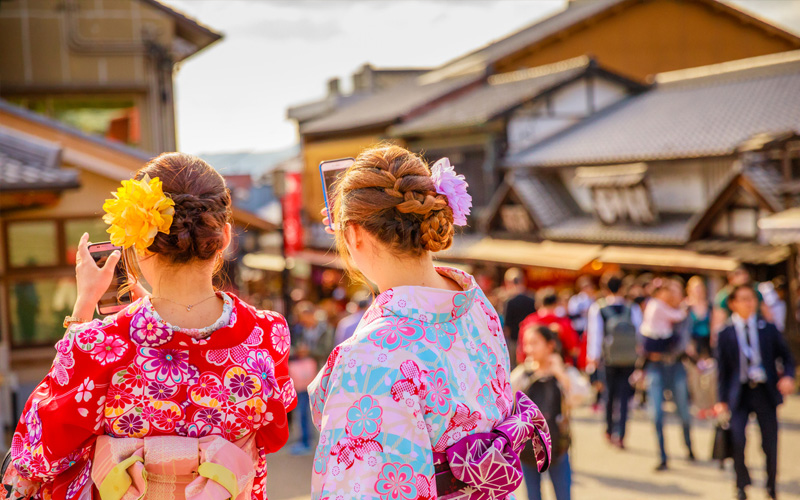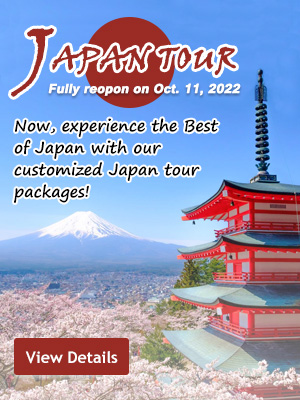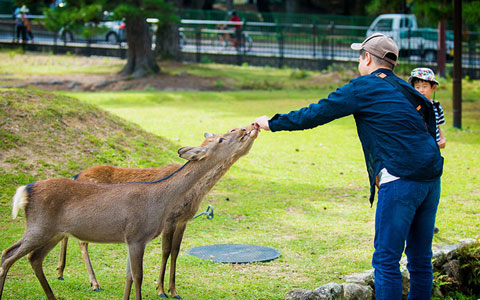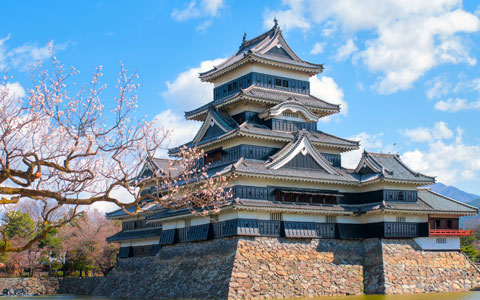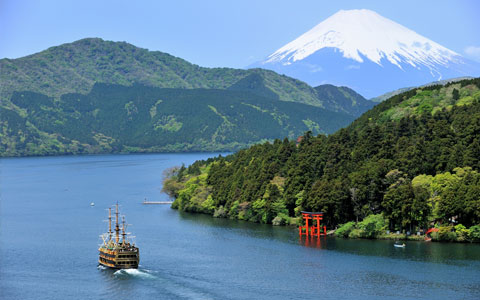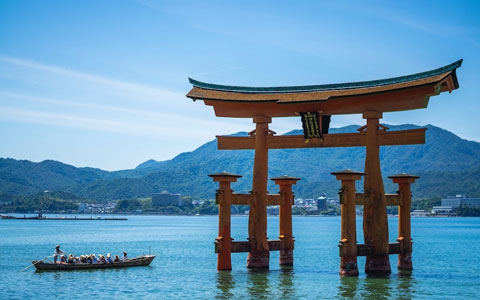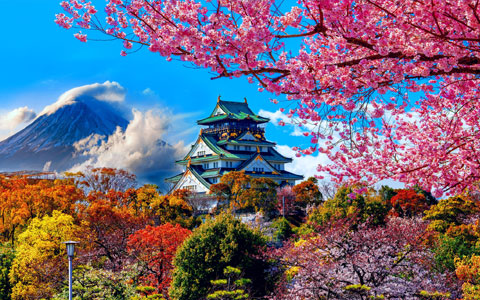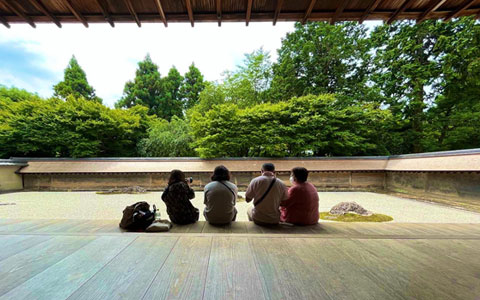With advanced technologies, bustling cities, mouthwatering food, interesting culture, and incredible landscapes, Japan offers much to see and experience. If you are traveling to Japan for the first time, here are some travel tips that will help your Japan tour be convenient, exciting, and memorable. Just get ready for the lifetime Japan tour with our facts about Japan.
1. Taxi is very Expensive in Japan, You Need to Hire a Car in Advance
Taxis in Japan are an expensive and unnecessary alternative to efficient public transportation. If you don’t want to be constrained by time or are a little confused by Japan’s complicated rail lines, the best way to get around is to rent a car instead of taking a taxi.
Car rental in Japan can also be an economical alternative when traveling in groups or can make traveling with a lot of luggage easier.
 A car allows you to drive to places that are not easily accessible by trains, and increases your flexibility.
A car allows you to drive to places that are not easily accessible by trains, and increases your flexibility.
Please notice:
Traffic in large cities, like Tokyo and Osaka, tends to be heavy, orientation difficult, and parking inconvenient and expensive. Instead of hiring a car with a local driver, it is recommended to travel by public transportation during the daytime as a better choice in metropolitan areas.
2. English is not popular in most countries in Asia, especially in Japan. Prepare a Translation Tool or Hire a Local Tour Guide.
Although the younger generation is learning English in school, the prevalence of English speakers in Japan is not very high.
Some modern museums or amusement parks may have English services, but in more ancient places such as temples and shrines, the attendants do not speak English.
If you don't want to trouble yourself with the details and hassle of traveling, hiring an English-speaking guide in Japan is very recommended.
Also, you can use Google translate or some other translation apps to help you communicate as necessary.
3. You can Travel to Japan all Year Around, but It’s Better to Visit Japan in this Season
Japan has four distinct seasons. The period from March to May is Spring, June to August is Summer, September to November is Autumn, and December to February is Winter. You can travel to Japan all year round, although, the best time to visit Japan is during Spring (March to May) and Autumn (September to November). This is when Japan is at its most animated, with delicate cherry blossoms adding contrast and beauty to the scenery. Don’t forget that it can also be very crowded at these times.
 Springtime in Japan is undoubtedly the prettiest period with amazing Cherry Blossom.
Springtime in Japan is undoubtedly the prettiest period with amazing Cherry Blossom.
4. Remember these Taboos when Visiting Japan
Japanese profoundly value respect and discipline. An important part of their culture is their deep faith and respect for authority. Even if you are not Japanese, you will find it hard to disobey the rules most Japanese follow
It’s good to know the basic Japanese etiquette and manners in advance to make your trip to Japan untroubled and enjoyable.
The following are a few things to be aware of.
- Don’t play with your chopsticks and never stick them vertically in your rice bowl. It’s considered rude behavior.
- Don’t make noise while you’re eating. The only exception is for soup noodles such as ramen, udon, and soba, when it comes to slurping soup and noodles, it shows that you’re enjoying your food.
- Don't ignore the queuing system. First come, first serve. Don’t cut the lines or else people will get mad at you.
- Don’t wear shoes inside the house. Remove your shoes and replace them with indoor slippers. Some Japanese hotels and restaurants require this practice, better ask their staff first.
- Avoid eating on the go, like in the street or subway. They will think as if you are taking food too casually and not showing respect to the people who made it. You are supposed to cherish your food. If you buy food from a street vendor, you need to stand nearby to finish eating before continuing to walk or pack the food back to the hotel.
- Don't blow your nose in public. Sniffing is normal, especially during winter, just avoid blowing your nose in public.
- Don't leave a tip. Tipping is not customary in Japan. The Japanese believe you are already paying for good service, so there is no need to pay extra by tipping
- Talking loudly on a train and bus is really hated by people. Please talk as quietly as possible at a volume that will not disturb others. Also, you shouldn’t talk on the phone on the train and bus.
5. These things you have to Take for yourself, because they are not available in Hotels
Toiletries and Personal Care Packs may not be provided in most hotels in Japan. But they are easy to pick up at convenience stores. however, it’s still best to bring your favorite scent and other products you are used to.
- Toothbrush and toothpaste
- Dental floss
- Eye drops
- Contact lens solution/contacts/glasses
- Comb/brush
- Nail clipper/file/tweezers kit
- Razor(s) and shaving needs
- Cosmetics
- Feminine care needs
- Cologne/perfume
- Creams and ointments you might need
- Hair ties, bobby pins, or headbands
6. It’s Better to Change the Money in Advance, it’s not Convenient to Exchange in Japan
Japan is still very much a cash-based society. Credit cards are accepted at most hotels and fine dining establishments, but good luck trying to pay with a card at a local handicraft shop or traditional market. Changing money can be inconvenient in Japan, as it's not easy to find a bank or a money changer. Instead, exchange your money before flying to Japan. ATMs in 7-11 convenience stores will accept almost any foreign cards, and the charges for international transactions are minimal. Japan is a very safe country, so don't worry about carrying big cash around!
7. Decide whether to buy a Japan Rail Pass, because it does not Cover all Shinkansen
Rail transport is the major transportation in Japan. They have advanced technology. Their bullet trains also known as Shinkansen are the fastest and most convenient way of discovering Japan. However, it can be expensive unless you have a JR Pass, you can have an unlimited train ride on the JR Line. For solo travelers or couples, it’s a very useful and economical way to travel around Japan. If you are traveling in a group or family, especially with kids and the elderly, hiring a private car charter is recommended. You will have comfort and convenience in getting around preferred attractions in Japan.
 Shinkansen is the fastest and most convenient way of discovering Japan.
Shinkansen is the fastest and most convenient way of discovering Japan.
8. Check if you need a visa to Japan under the COVID-19 travel restrictions
Almost all overseas tourists are required to obtain a tourist visa to enter Japan. Countries with visa-free travel to Japan include the United States, Australia, Argentina, and most European countries.
Since the reopening of inbound tourism to Japan in June 2022, overseas travelers to Japan must book a guided tour through a travel agency to obtain a visa. Currently, the individual tour is still not available in Japan.
In addition to a visa, overseas visitors to Japan must have mandatory medical insurance and take the COVID-19 test before traveling to Japan. The negative result of the COVID-19 test within 72 hours before boarding the flight is required.
Travelers departing from some countries are not required to provide proof of vaccination.
Please Notice:
Local vaccination policies are subject to change due to the ever-changing epidemic situation. Please be sure to contact us in advance for the latest information on Japan tourist visas.
9. Bring comfortable shoes and socks that can be easily put on and taken off
You need to prepare a pair of comfortable walking shoes for traveling in Japan, as you may need to do a lot of walking.
Many historic temples and ancient shrines are built on hills and you will need to hike up them or walk a short distance from the station to reach them. And most historic sited do not have conveniences such as elevators or escalators.
In addition to being comfortable, your shoes need to be easy to put on and take off. Because when visiting shrines or temples in Japan, you need to take off your shoes to enter the interior.
10. Start early to avoid crowds and make booking tickets in advance for popular activities
Be proactive! Book a ticket in advance to save time, especially the well-known activities or tourist spots.
 It is better book the ticket in advance and avoid the lines sometimes.
It is better book the ticket in advance and avoid the lines sometimes.
If you want to have an “instagramable” view in a beautiful landscape, start early before it gets crowded. Aside from getting an amazing (picture-perfect) view, you’ll have more time enjoying Japan.
Conclusion
Japan is one of the oldest civilizations and has a beautiful and diverse history. The stunning, diverse scenery with mountains and breathtaking views, offers so many different experiences that attract tourists from all corners of the world.
However, for many overseas tourists, Japan is a mysterious country in the East. Before traveling to Japan, knowing some dos and don’ts and travel tips can make your Japan tour smoother and worry-free.
More Related Readings
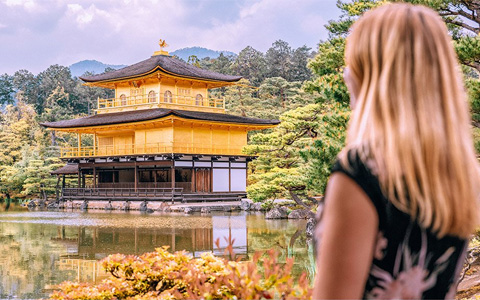


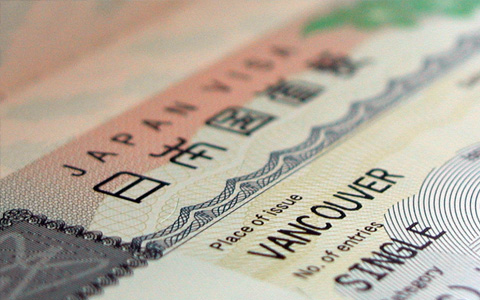

 inquiry@myasiatours.com
inquiry@myasiatours.com